Former officer acquitted after shooting death of Sylville Smith reaches plea deal in sex assault case
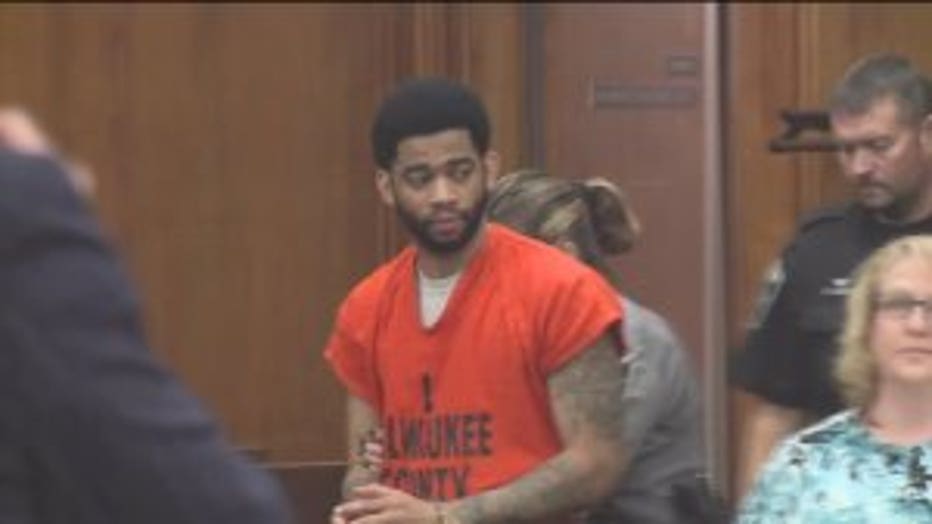
Dominique Heaggan-Brown
MILWAUKEE -- Dominique Heaggan-Brown, 26, the former Milwaukee police officer acquitted in connection with the shooting death of Sylville Smith in August on Thursday, Jan. 18 reached a plea deal in a sexual assault case filed two months after the shooting, which resulted in his termination from MPD, after an investigation found him to be in violation of MPD's Code of Conduct.
Heaggan-Brown pleaded no contest to an amended charge of false imprisonment. He then pleaded guilty to the remaining five charges:
He'll be sentenced on Feb. 20. He faces 15 years behind bars.
Heaggan-Brown's attorney said they were prepared to go to trial but through this plea deal, they struck some of the most serious charges against his client, and it's in his and the state's best interest to not force the victims to publicly testify in court.
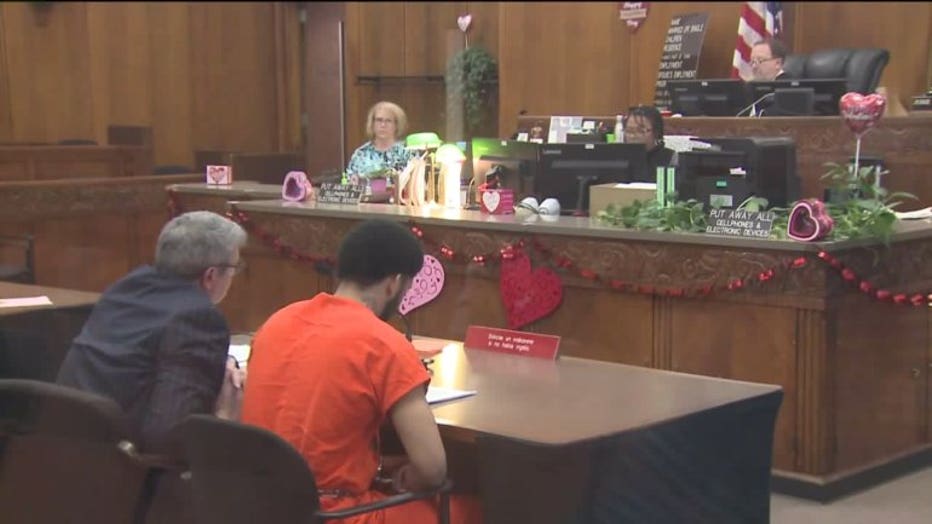
On Aug. 15, 2016, a victim reported to Milwaukee police he had been sexually assaulted by Heaggan-Brown while off-duty. An investigation, conducted by MPD's Internal Affairs Division and Sensitive Crimes Division, resulted in the criminal complaint filed in October by the Milwaukee County District Attorney's Office. MPD's investigation revealed additional allegations, resulting in added charges.
The criminal complaint indicates there were four victims in all. The incidents described in the complaint happened in December 2015, July 2016 and August 2016.
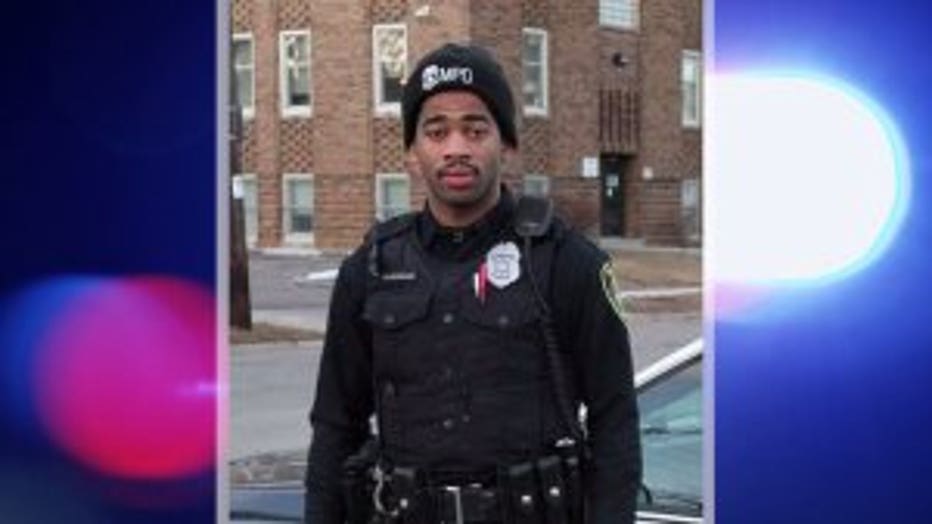
Dominique Heaggan-Brown
Prosecutors say Heaggan-Brown apparently dropped an adult victim off at St. Joseph's Hospital on Aug, 15, 2016. Heaggan-Brown told hospital workers the victim was "completely out, zonked out of his gourd." While nurses were giving aid to the victim, the complaint indicates the victim "flipped out. 'Help me, help me, he was touching me,' exclaimed (the victim)."
The complaint indicates that further investigation showed this victim and Heaggan-Brown first met when the victim "was looking for another musician" to help with his music. "As a rapper, the defendant thought he could assist (the victim)," the complaint says.
On Aug. 14, Heaggan-Brown and the victim went to a bar. They "sat and watched television, as coverage of the Sherman Park protests aired." The victim told police he "had difficulty remembering what transpired after (the victim) left the bar with the defendant." He did recall waking up to the defendant attempting inappropriate sexual acts on him. The victim also told police he "felt drugged."
On Aug. 15, after Heaggan-Brown took that victim to the hospital, the complaint indicates he reached out to a City of Milwaukee police sergeant -- a mentor of his. A text message from Heaggan-Brown to the sergeant reads as follows:
"Not so good got a separate situation. Need your help big time...But need to handle this the most secret and right way possible."
After an interview with investigators, police went through Heaggan-Brown's phone. They found messages with two other individuals who told police Heaggan-Brown offered them money for sex. One said it happened on eight or nine separate occasions -- the other three of four different times.
Heaggan-Brown was initially suspended from the Milwaukee Police Department and eventually terminated.
He was first appointed to MPD as a police aide in 2010, and became a probationary police officer in 2013.
Shooting death of Sylville Smith
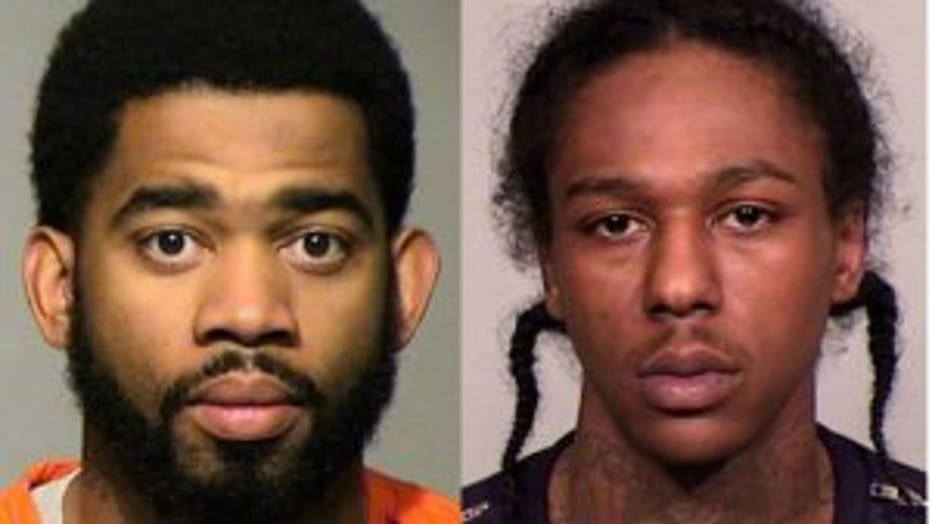
Dominique Heaggan-Brown, Sylville Smith
Heaggan-Brown was charged with first degree reckless homicide for the shooting death of Sylville Smith, but a jury acquitted him in June of 2017. The prosecutor argued that Heaggan-Brown fatally shot Smith as the suspect attempted to surrender. But the former officer's attorney countered that his client made a split-second decision to protect his life and that of another officer. Judge Jeffrey Conen had instructed the jury of nine women and three men to consider lesser charges in the reckless homicide trial but Heaggan-Brown was cleared of all counts.
Heaggan-Brown faced 60 years in prison.
Heaggan-Brown's former partner, Ndiva Malafa, testified they were chasing Smith, 23, on Aug. 13, 2016 because they saw he had a gun.
"I saw Mr. Smith exit the vehicle. I observed the firearm and at that point, we made eye contact. At that moment, I believe I started to -- I see him running northeast. Out of the corner of my eye, I see Heaggan-Brown chase him as well," Malafa testified during the trial.
Malafa's body camera footage was played several times in court. Malafa also guided the jury through the footage frame by frame. The video picked up as Malafa jumped out of the squad car. The shaky footage shows him trailing behind Heaggan-Brown, who was chasing Smith. The suspect ran across a lawn, turned a corner and headed toward a fence but slipped before reaching it.
Smith was armed with a Glock .40-caliber Model 22 semi-automatic handgun with an extended magazine containing 23 rounds. An autopsy showed that Smith had a gunshot wound through his upper right arm and another to his right upper chest.
Body-camera video showed that Heaggan-Brown shot a second bullet into Smith's chest after the suspect hurled his weapon over a fence and had his hands near his head. Smith was on the ground when he received the fatal shot.
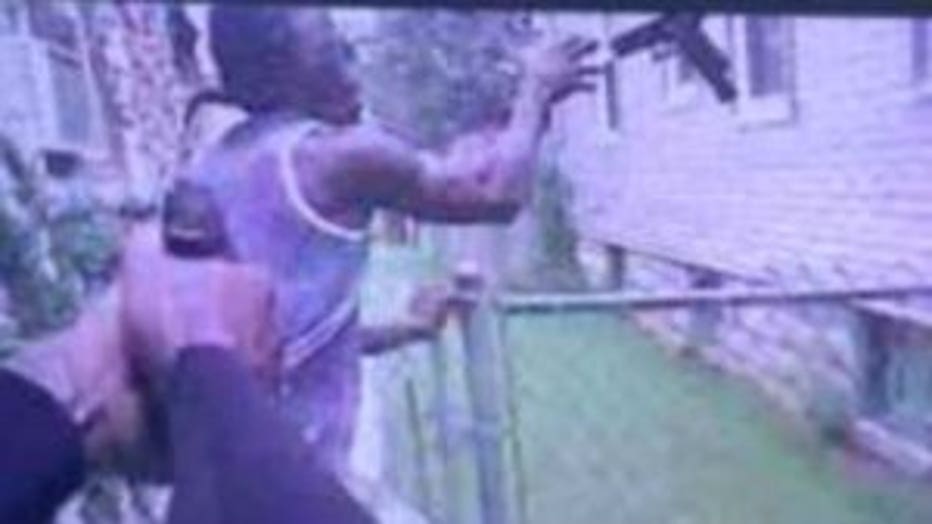
Dominique Heaggan-Brown body camera video
In the body camera audio, which was activated 30 seconds after the shooting, Heaggan-Brown was heard yelling at Smith: "Stop reaching." He moved Smith's hand away from his waist, the criminal complaint said. Heaggan-Brown had previously said he believed Smith "was reaching for his waist so he discharged his weapon a second time."
An expert in police use of force testified that Heaggan-Brown acted in "accordance with his training." His testimony centered on the 1.69 seconds separating the two shots. He testified the officer's decision to fire again was made before he even pulled the trigger. The second shot was justified, he told the jury, because officers are trained to assume a suspect may have more than one weapon. Heaggan-Brown experienced the encounter in "real time," not in frame-by-frame motion as it was shown to the jury, he said.
Smith's death sparked days of unrest in Milwaukee.
After the acquittal, Smith's family announced they filed a federal civil lawsuit against Heaggan-Brown and the City of Milwaukee -- asking for a monetary award to Smith's estate, leaving how much up to a jury. The suit called Smith's death an execution-style shooting of an unarmed civilian.
This case marked the first time since the late 70s a Milwaukee police officer was charged with homicide for an on-duty shooting. Additionally, this was the first sequestered jury in more than 20 years.

